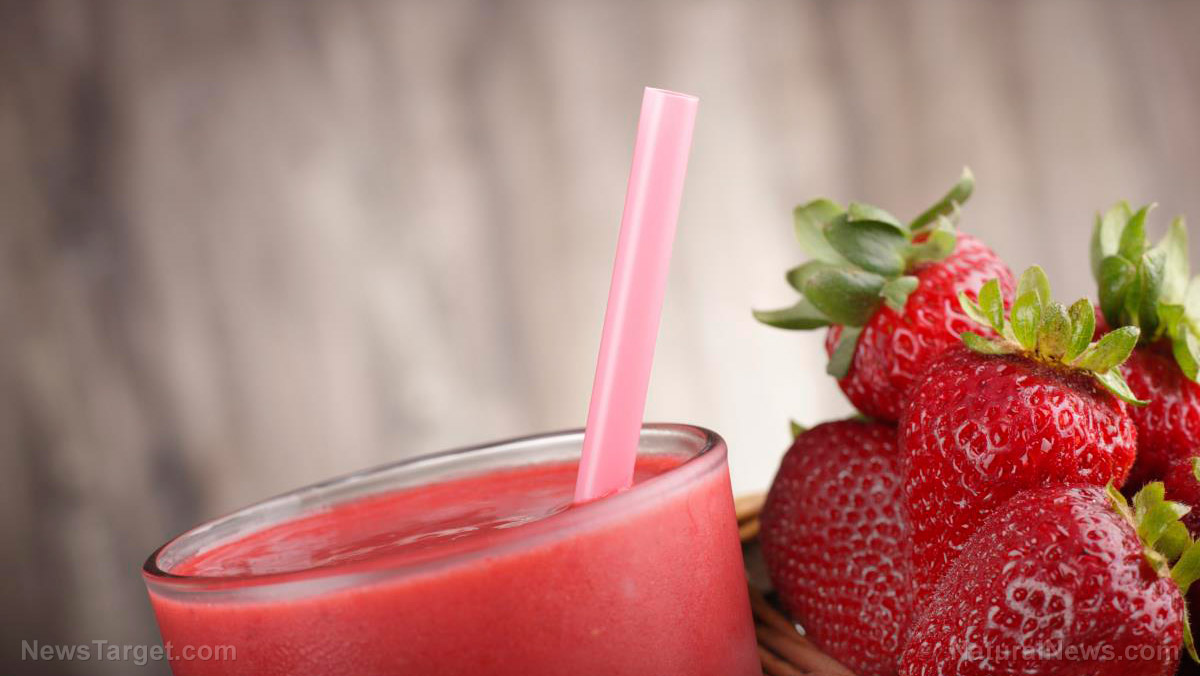Plastic straws, scourge of oceans, meets its match – in seaweed straws
07/21/2019 / By Zoey Sky

Plastic straws may seem harmless, but if everyone in your neighborhood threw away a plastic straw once a day for one week, you would all accumulate a lot of plastic waste. Straws don’t decompose, and seabirds and animals ingest plastic. A startup called Loliware has designed “The Straw of the Future” – which is made of seaweed and breaks down in the water – to address this ecological nightmare.
The straws are even marketed as products that “look, feel, and act like plastic,” minus the pollution.
Better than paper straws
Loliware designed and developed these seaweed straws as a greener alternative to plastic straws. The startup hopes to bring these “hyper-compostable” seaweed straws to stores soon.
Americans use and throw away at least 170 to 390 million straws every day. To address this environmental concern, Loliware’s Kickstarter-funded single-use seaweed straws were designed to disappear and biodegrade.
The incredible seaweed straws can break down within weeks once they’re submerged in water. Loliware’s seaweed straws are made from 100 percent food-grade materials. The straws are gluten-free, marine-degradable, non-GMO, and sugar-free. They can also withstand 18 hours of continuous use, compared to paper straws that get soggy and turn useless within minutes.
You may think that paper straws are better than the standard plastic straws, but the former is just as bad for the environment. Paper production still emits pollution, and paper straws are inefficient to recycle. Paper straws also cost three times as much to produce compared to plastic straws. Finally, the former still needs tree-based resources.

Chelsea Briganti, Loliware’s CEO, explained that every piece of plastic ever created, used, and discarded still exists. With five trillion pieces of plastic in the oceans, it’s estimated that about ten million tons of plastic are produced every second. Briganti advised that “[s]ingle use plastics should never be built to last, they should be designed to disappear.”
Edible, sustainable seaweed straws
If you don’t want to throw away your seaweed straw, you could even eat it, if you wanted to. The seaweed straws can be made with fruit flavors or added nutrients. Additionally, these eco-friendly straws are sustainably developed using seaweed, which is a regenerative resource.
Loliware’s seaweed straws boast a shelf life of up to 24 months, and they break down after at least 60 days, at the same rate as food waste. The startup shared that its goal is to completely replace plastic straws used at high-waste venues, such as fast-food restaurants and stadiums.
Around the globe, efforts are being made to curb the use of plastic straws. These single-use plastics contribute to a whopping eight million tons of plastic waste that pollute the ocean annually.
But there’s more the plastic waste than just plastic straws. Plastic has been found on every continent, such as Antarctica, and even at the bottom of the world’s deepest oceans. Sadly, less than one in ten single-use plastics are taken straight to a recycling facility.
Tips for reducing your plastic waste
While you’re waiting for Loliware’s seaweed straws to be mass-produced, switch to glass or stainless steel straws for the meantime. You can also follow these tips to reduce the amount of plastic waste that you produce daily.
- Eliminate single-use items like paper napkins, plastic utensils, or plastic water bottles.
- Look around your house for zero waste tools. Canning jars can double as storage for various items, and you can repurpose old shirts into cleaning rags.
- Before you buy brand-new items, try to look for secondhand options at garage sales or thrift stores. (Related: Want to stop using plastic? Here are 9 ways to start.)
- Wait 30 days before you purchase something you think you need. Most of the time, it’s just something you want and will probably just add to the waste you produce.
- Get crafty. Make what you need instead of buying single-use items. You can also opt to cook at home instead of eating out to minimize plastic waste.
- Start composting to reduce your food waste.
Make small changes and aim to minimize the waste you produce by recycling and repurposing items whenever you can.
Sources include:
Submit a correction >>
Tagged Under:
This article may contain statements that reflect the opinion of the author





















